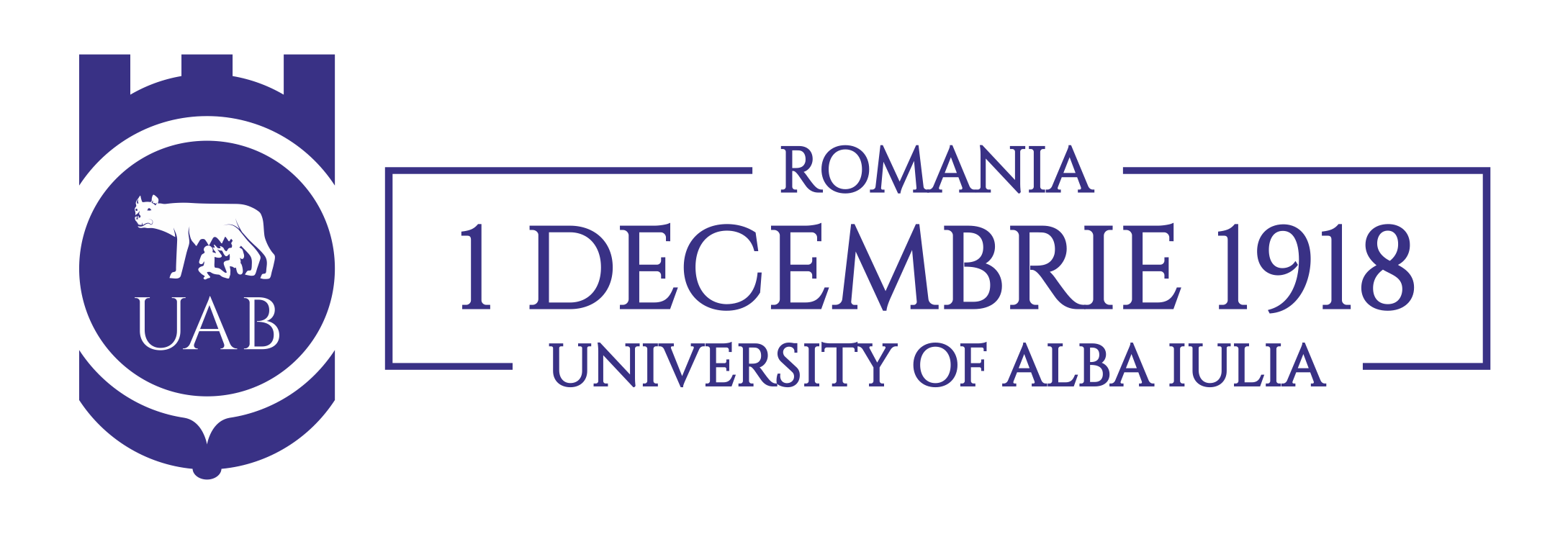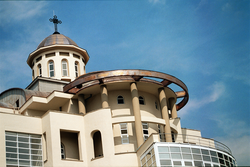
Duration of studies
4 years
Brief presentation
The study program is accredited by the Ministry of Education, developing a quality education in the field of theology and humanities. The educational objective of the Pastoral Orthodox Theology program is determined by academic rigors (internal and international learning and research partnerships for students and teaching staff; competitiveness; actuality; interdisciplinarity) and spirituality (building the moral profile of the student). The teaching staff have benefited from professional training in Romania and abroad, which gives the integration of theological education in Alba Iulia in the international flow of the profile. Students are actively integrated into the learning and research process.
Qualifications and professions upon graduation
Upon completion of the studies, the Pastoral Orthodox Theology program considers the sacerdotal integration (specialists in religion, deacon, priest, bishop, specialists in the social field) or in education, by graduating the psycho-pedagogical module (teachers in primary, middle school, secondary and higher education).
Main subjects studied
The Pastoral Orthodox Theology program offers a wide range of subjects, aiming at the intellectual and moral development of the student. It is, in fact, an exercise in knowledge that engages the dialogue between disciplines of a theological, philosophical nature, of the history of religions in general and of Christianity in particular, biblical, historical, systematic, or practical sciences. By combining them, the Pastoral Theology program offers the student a harmonious development, a vast culture, strongly articulated in everyday realities. The main disciplines are: The Study of the Old Testament, the New Testament, the History of Christianity, the History of the Romanian Orthodox Church, Patrology, Byzantium, Missiology, History and Philosophy of Religions, Liturgical, Homiletics, Dogmatics, Morals, Pastoral, Greek Language, Latin Language, and English Language.
Aspects regarding professional practice
The module of practical disciplines is very developed. There are partnerships concluded with stakeholders in Romania (Orthodox Archdiocese of Alba Iulia; urban and rural parishes, NGOs) and through "1 Decembrie 1918" University of Alba Iulia, within the Erasmus programs, with similar institutions abroad.
Possibilities for further studies (master's degree, doctorate)
The Faculty of Theology offers the possibility to continue the studies through two Master study programs and Doctoral Studies. The Master develops two directions: Comparative Theology and Intercultural and Interreligious Mediation.
Employment opportunities
The employment rate after graduation is high. This is possible given the absorption power in this area through the profile structures: Archdioceses, Dioceses, Deaneries, Parishes and NGOs, where an increased need for human resources has been identified.
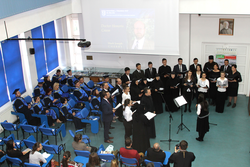
Duration of studies
3 years
Brief presentation
The study program was founded in 2014, with the blessing of the Archbishop of Alba Iulia. The initiative to set it up came out of a necessity, as the wider region of Alba County did not have higher education programmes that would allow the training of professional musicians. On the other hand, the demand for specialists in the field of music has become increasingly high in recent years, amid the intensification of artistic activity at the county level through the emergence of specialized bands (brass band, orchestra) that need qualified personnel. This program has a special status in shaping the zonal and national cultural landscape, because, through its two levels – theologically and musically – it contributes to the revaluation of a historical experience in which singing, and prayer were harmoniously completed.
Qualifications and professions upon graduation
The qualifications and professions acquired after graduation are as follows: Teacher in secondary education; Teacher in high school, post-secondary education; Music reviewer; Chorister; Church singer; Conductor; Documentarian (higher education).
Main subjects studied
The undergraduate program aims to provide a multifaceted perspective on music, addressing both elements of universal musical culture and aspects related to national and local musical culture. In this sense, we could divide the studied disciplines into 3 categories. 1) Disciplines aimed at appropriating the language of universal musical culture, such as: Theory, Solfeggio, Dictation; History of music; Harmony; Counterpoint; Musical forms and analysis, Instrument theory, Reading of musical scores. The knowledge acquired in these disciplines will allow the student to correctly analyze and interpret a piece of music from a certain stylistic period. These skills can be developed at the choral group and conducting choir courses. 2) Disciplines aimed at appropriating the language of music of Byzantine tradition: Byzantine Music Theory; Byzantine musical paleography; History of Byzantine music. Once appropriated, the specific notions of this musical culture will be put into practice at the psalm group courses, as well as by participating in the services held in the faculty chapel. 3) Disciplines that deal with national and local musical traditions. Folklore is one of the great riches of our country that must be known and capitalized. After a presentation of the musical traditions specific to each folk area, students will have the opportunity to analyze the specifics of the area they come from. Those interested can opt for the courses of folk instrument (violin, accordion, double bass, etc.), having the opportunity to be part of the folk band of the Faculty of Theology.
Aspects regarding professional practice
The professional practice is carried out individually, within courses such as choral singing, piano, reading of musical scores, or in common, within different types of bands of the Faculty of Theology; choral group, psalm group, folk orchestra. Partner institution: Romanian Orthodox Archdiocese of Alba Iulia.
Possibilities for further studies (master's degree, doctorate)
The Faculty of Theology offers the possibility to continue the studies through one Master study program in Religious Music and Folklore.
Employment opportunities
The opportunities are multiple: the possibility to occupy a teaching position for the specialization Musical education within primary and secondary education; occupying a position of choir conductor; occupation of a position of church singer; member in different types of vocal (choirs, vocal groups) or instrumental (orchestras, brass band); music reviewer.
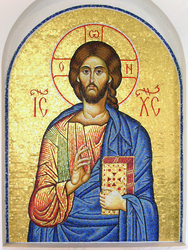
Duration of studies
3 years
Brief presentation
The general objective of the study program is to train specialists in the field of sacred arts in general (granting the bachelor’s Diploma in the field of Visual Arts), and the specific objective is to initiate and train young people as specialists in mosaic and fresco, but also in order to access master's and doctoral studies in this field. As it was put together in order to obtain the authorization, the study program is structured on three years of study, respectively 180 ECTS. The completion of the studies ends with an examination consisting of two tests: a theoretical examination, summative of the acquired knowledge and a practical-applicative one.
Qualifications and professions upon graduation
The holder of the Diploma of Bachelor of Sacred Art can be employed as: Plastic artist sacred goods; Graphic designer; Painter; Artistic consultant; Organizer of fairs and exhibitions; Teacher in gymnasium education (after graduating the Psycho-Pedagogical Module); Expert reviewer of cultural settlement. The list is not exhaustive and has an exemplary character; the civil and ecclesiastical legal regulations in force may condition the occupation of certain positions by the graduation of a master's program or of some post-graduate programs.
Main subjects studied
The structure of the curriculum is six semesters with an average schooling duration of 14 weeks and a number of approximately 22-24 hours per week and a number of 60 ECTS per year. The subjects are organized hierarchically and successively so as to contribute to the good assimilation of knowledge in the field and the acquisition of new competences. In developing the curricula and the list of subjects, it was taken into account the recommendations of the Romanian Quality Assurance Agency, the teaching plans from the educational offer of other similar programs in Romania and abroad, as well as in accordance with the norms and good practices in the field. The main subjects studied are: History of Universal Art, Artistic Anatomy, Study of Drawing for Iconography, Iconography, Christian Art: Techniques and Styles, Study of Color for Iconography, History of Romanian Medieval Art, Paleo-Christian Techniques, Transposition Techniques, Applied Paleography, Erminia of Byzantine Painting, Elements of Ecclesial Architecture.
Aspects regarding professional practice
A major focus is that the students know the plasticity of the materials from which the works are made (a condition that we consider as fundamental in order to prepare future specialists), with the implicit purpose of avoiding confusions between artistic genres, for example, as well as understanding and developing each artistic quality of the chosen genre. In parallel with this dominant activity, studies of drawing, color, compositions will be carried out, including both elements of plastic language and artistic expressiveness in general and, in particular, their adoption to the specificity of the basic modules (for example, a certain drawing, color and composition for mosaic in relation to sgrafitto or to miniature, etc.). The techniques can be found in the plasticity methodologies of the materials used. The students will get used to several ways of artistic expression, applied to the characteristics of the Byzantine style, especially those regarding the mosaic technique and the technique of applying the fresco. Through such methods, we consider that the premises of "training" the artistic vocation of the students can be created, in order to express the artistic creativity in the canonical frameworks of iconography. At the same time, thanks to this chosen formation pattern, it is estimated that connections, compatibilities between different artistic materials can also appear, in order to obtain alternative plastic visions, specific to the visual expression of transcendentality, with special cultural and cultural aspects. An important component in the training of students will be the practice on the painting sites of the Diocese of Alba Iulia, which will offer students a real contact and from the source with their future professional development environment. In this regard, practice contracts have already been signed and the way of carrying out and scoring these activities has already been established. Niches on the development of practice are on the components of work in mosaic technique and fresco technique.
Possibilities for further studies (master's degree, doctorate)
The Faculty of Theology offers, from a professional and teaching point of view, the entire range of higher levels of training (bachelor, master, doctorate). The Sacred Art Program is currently authorized for operation by the bodies authorized for this purpose, namely ARACIS.
Employment opportunities
The graduate of the Sacred Art program can be hired as: Plastic artist sacred goods; Graphic designer; Painter; Artistic consultant; Organizer of fairs and exhibitions; Teacher in gymnasium education (after graduation the Psycho-Pedagogical Module); Reviewer of specialized cultural establishment.
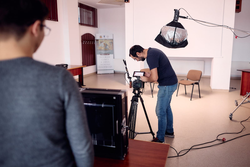
Duration of studies
3 years
Brief presentation
The study programme CINEMATOGRAPHY, PHOTOGRAPHY, MEDIA (AUDIOVISUAL COMMUNICATION: SCREENWRITING, MEDIA ADVERTISING, FILMOLOGY) is in full accordance with the European Qualifications Framework and the ESCO descriptions: major category Professionals ESCO ISCO-08 code 2642.
Qualifications and professions upon graduation
Producer of RTV shows / Music note copier COR 265409 • Producer audio-video / Audio-visual producer COR 265430 • Editor coordinator TV programs / TV Program coordinator editor COR 265431
Main subjects studied
- Media - Communication - Communion- Manipulation and anti-manipulation in media and TV – Law in mass-media field
Aspects regarding professional practice
Knowledge of the meaning of the fundamental concepts, theoretical and practical, of the field of Cinematography and Media; 1.2. Appropriate use of the specific elements of audiovisual communication, cinematographic language and scriptwriting; 1.3. The ability to acquire methods and procedures of analysis, evaluation and scientific research of the phenomena in the field of media culture; 1.4. Appreciation of the social role of audiovisual language as a communication resource and source of religious and cultural experiences.
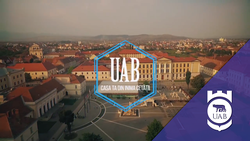
Duration of studies
4 semesters
Brief presentation
Training of clerical and non-clerical personnel specialized in understanding, analyzing and scientifically interpreting the religious phenomenon; Program objectives: Acquiring of skills for the scientific investigation of different forms of socio-religious manifestation of the main Christian confessional traditions, in the context of their history and social, cultural and artistic tradition; engaging in a public interreligious and inter-denomination dialogue based on common principles and values for cultivating understanding, respect and religious diversity in a pluralistic society; promoting evangelical values in a positive, comparative and heuristic commitment to the values of other Christian denominations, in a critical and reflective analysis of one's own faith, especially the Orthodox one.
Qualifications and professions upon graduation
Specialists in religion, especially in the field of research of Orthodox theology in relation to other Christian denominations; Trained specialists in teaching Religion and the History of Religions; Professors for secondary and higher education
Main subjects studied
Religious geopolitics: Islam, Judaism and Christianity in dialogue; The doctrinal message of the icon for the third millennium from an interfaith perspective; Religion and politics in interwar Romania. Comparative perspective; Mysticism and mystagogy in the liturgy of the Christian East; Ethics and morals to great prophecies: historical context and contemporary times; Theological themes in contemporary ecumenical dialogue. Evaluations and perspectives; Modern catechisms and confessionalism; Comparative Overview at the ascetic, mystical and liturgical traditions of the Christian East (Byzantines, Armenians, Copts, Ethiopians, Syrians and Latins).
Aspects regarding professional practice
The practice is carried out after the end of the direct teaching activities in the second semester. The practice for students enrolled in master's research programs will be carried out, as far as possible, in scientific research units, research centers and in UAB research laboratories. The practice exam will take place in the last week of September.
Possibilities for further studies (master's degree, doctorate)
The Doctoral School of Theology, through its 11 doctoral supervisors and the related study programs, covers a vast area of research, from systematic theology and bioethics (history and philosophy of religions, dogmatics, morals, life ethics), to practical theology (liturgical, music, homiletics and catechetical).
Employment opportunities
The employment rate after graduation is high. This is possible given the absorption power in this area through the profile structures: Archdioceses, Dioceses, Deaneries, Parishes and NGOs, where an increased need for human resources has been identified.
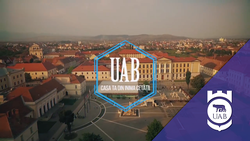
Duration of studies
4 semesters
Brief presentation
Training of specialists in the field of mediation and interfaith and interreligious dialogue; understanding, analysis and making the right decisions for ecumenical dialogue > Objectives of the programme: Training of scientific investigation skills, sine ira et studio, interculturality and interreligious processes taking into account the code on professional deontology and ethics Engaging inter-denomination and interreligious dialogue to cultivate understanding, respect and religious diversity in a multi-ethnic/confessional/religious society Promoting universal values, common to all religions: fighting discrimination, equal opportunities, promoting life by limiting any typologies of violence, building a positive pacifist-integrative vision of the world.
Qualifications and professions upon graduation
Training of specialized staff in the field of mediation and interfaith and interreligious dialogue; specialists in conflict resolution; mediator counselor; COR school counselor: 231 Prepares specialists in teaching Religion and the history of Religions; Professors for secondary and higher education.
Main subjects studied
The ethics of life in the context of the consumer society; Pastoral counseling and the nature of human relationships: from conflict to communion; Current issues in the process of intercultural and interreligious mediation and their roots; Religious music- the art of transforming conflict into communion; The Church and the Byzantine state - between dialogue, conflict and diplomacy; Directions and currents in comparative patristics: West & East; Sociology of religions: objectifications of the Sacred in social anthropology; Cosmology from the perspective of ecumenical dialogue; Intercultural theology and ecumenism; Religion and violence at the beginning of the millennium and the response of a genuinely agapic theology; Cultural, historical and legislative foundations of church mediation; Orthodox anthropology in contemporary missionary dialogue: holocaust, cremation and Eco theology.
Aspects regarding professional practice
The practice is carried out after the end of the direct teaching activities in the second semester. The practice for students enrolled in master's research programs will be carried out in the institutions and organizations where master students are employed (if they work in the field of the master program or if the organization has departments in the field of the master program) or, if they do not have a job, in organizations in the field.
Possibilities for further studies (master's degree, doctorate)
The Doctoral School of Theology, through its 11 doctoral supervisors and the related study programs, covers a vast area of research, from systematic theology and bioethics (history and philosophy of religions, dogmatics, morals, life ethics), to practical theology (liturgical, music, homiletics and catechetical).
Employment opportunities
The employment rate after graduation is high. This is possible given the absorption power in this area through the profile structures: Archdioceses, Dioceses, Deaneries, Parishes and NGOs, where an increased need for human resources has been identified.
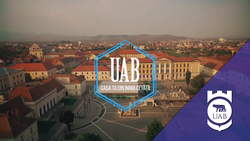
Duration of studies
4 semesters
Brief presentation
The study programme in the field of Music started in 2014, when the Department of Religious Music was set out at the Faculty of Orthodox Theology in Alba Iulia. In 2019, the study programme was accredited, with each promotion of graduates feeling more and more acutely the need to open a master's program that would allow graduates to continue their studies. Many of our graduates have opted for a teaching career in secondary education and graduating master level being necessary to be able to tenure themselves on teaching positions in high school and post-high school education. Also, the increase of the prestige of the local musical bands implies a continuous improvement of their members, which would allow them to achieve a higher degree of professionalism.
Qualifications and professions upon graduation
Copier of musical notes ; Musical reviewer ; Teacher in high-school/post-secondary education (conditioned by the graduation of the psycho-pedagogical module, level II). The master's program addresses two great levels of musical culture, religious music and folklore, the subjects in the curriculum illustrating their different aspects. The following disciplines will be studied: Stylistics of Byzantine music, Ecclesial and ritual music, Religious choral music in the 20th century: orientations and trends, Choral liturgical singing, Conducting techniques in church music, Reading religious choral scores, Psalmodia and esoteric music, Aesthetics of religious music, Byzantine musical cultures, Principles of transcription of neumatic notation into linear notation, Variants of Byzantine music in the Orthodox area. Musical folklore is illustrated in the educational plan of the program through disciplines such as: Modal harmony applied to Romanian folk song, Traditional music group, Folk organology, Carol – musical and literary genre, Folklore collection – techniques and methods, Ethnomusicology, Vocal techniques of folk singing, Folk processing in the creation of Romanian composers, Principles of transcription of musical folklore, Conducting a Folk group. In addition to the subjects mentioned, there are also disciplines that provide an overview of musical language, such as the Higher Theory of Music. At the same time, specialized practice offers master students the opportunity to apply the knowledge acquired in vocal, instrumental, or vocal-instrumental bands.
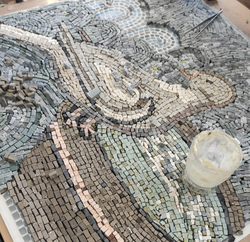
Duration of studies
4 semesters
Brief presentation
The master's program Byzantine Mosaic Art offers graduates the ability to use several ways of artistic expression, applied to the characteristics of the Byzantine style, especially those regarding the mosaic technique and the technique of applying fresco. Through such methods, the premises of "training" the artistic vocation of students can be created, in order to express artistic creativity within the canonical frameworks of iconography. At the same time, thanks to the chosen training pattern, connections can also appear between the different artistic materialities, in order to obtain alternative plastic visions, proper to the visual expression of transcendence, with special cultural aspects. Another objective of this master's program is to train specialists who can research and analyze artistic works, a relevant aspect considering the historical potential of the area and the multitude of existing historical sites. This program is primarily addressed to graduates of the Sacred Art specialization, offering them the opportunity to complete their professional training.
Qualifications and professions upon graduation
Plastic artist (COR 265102), Painter (COR 265106), Conceptual artist (COR/ESCO: 2651.5)
Main subjects studied
The main disciplines studied within this program are: Sacred Art - Evolution, techniques and styles, Paleotechnics of mural-mosaic art, Iconography of contemporary art, Theology of the Byzantine icon, Explorations in mosaic art, Ethics of conservation and restoration.
Aspects regarding professional practice
The internship is carried out after the end of the direct teaching activities of each semester and is scheduled weekly. The internship for students enrolled in professional master's programs can be carried out in the institutions and organizations where the master's students are employed (if they carry out their activity in the field of the master's program or if the respective organization has departments in the field of the master's program) or, in the event that they do not have a job, in organizations in the field.
Possibilities for further studies (master's degree, doctorate)
In the near future, it is planned to create a doctoral school in the field of Visual Arts so that, in this way, the training cycle is complete (bachelor's, master's, doctorate). This goal is also necessary for the training of our own teaching staff required for the program.
Employment opportunities
The analysis of the labor market in the area certified a requirement for the improvement of certain professional categories in the field of Visual Arts. It was found that there is a need to cover three qualifications with specialists: plastic artist, conceptual artist and painter. Among the graduates of the Visual Arts bachelor's degree, more than half are employed in the field for which they trained or intend to change the field in which they work with the artistic one in which they qualified. The employers in the area surveyed – school principals, representatives of the Alba Iulia Orthodox Archdiocese, the Alba Iulia City Hall and the Alba County School Inspectorate – indicated that they have hired graduates of the Sacred Art program within our Faculty and that there is a need on the labor market for well-trained people, a goal that can be achieved by graduating from a master's program in the field.
